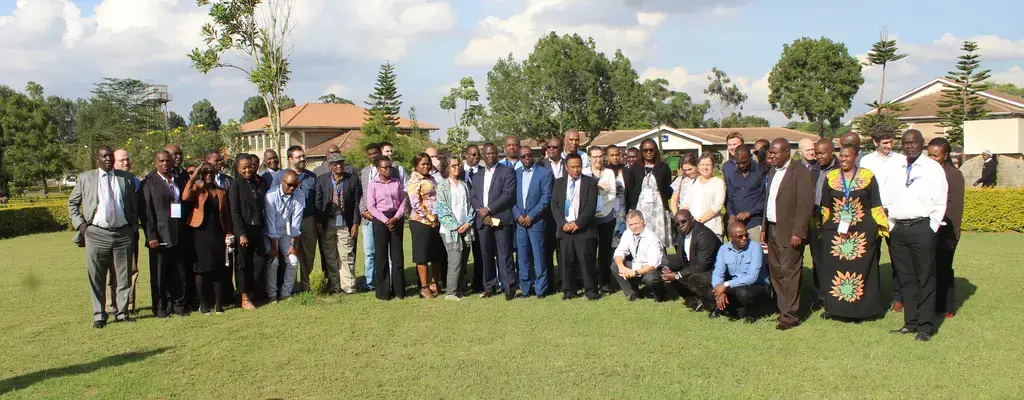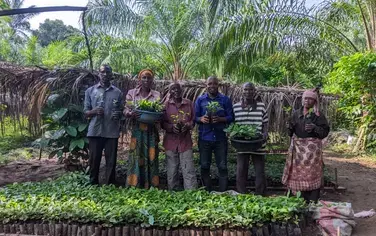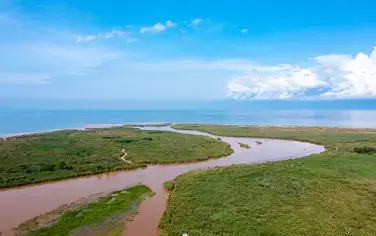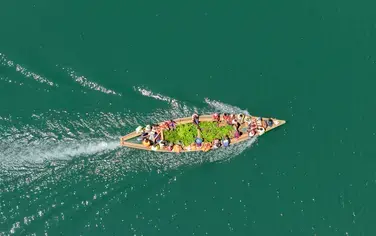Member countries of the African Forest Landscape Restoration Initiative (AFR100) and key partners met in Nairobi, Kenya from Oct 29-30, 2018 to discuss funding opportunities available within the Global Environment Facility (GEF) and other sources. Countries are eager to begin financing their pledges to begin the restoration of at least 111 million hectares of degraded and deforested land by 2030.
The GEF-7 Planning Workshop was convened by the African Union’s New Partnership for Africa's Development (NEPAD), in partnership with Conservation International, the Global EverGreening Alliance, and World Resources Institute. A total of 15 technical partners of the AFR100 participated in the workshop.
Under the leadership of the NEPAD Secretariat, AFR100 connects country partners with technical and financial support to scale-up restoration on the ground. The workshop also sought to enhance coordination and information sharing among AFR100 countries that have similar restoration priorities and seek similar types of GEF funding.
“The workshop was a big success and was the first of its kind, since it brought AFR100 countries together with funding partners, including GEF and investors from the private sector, key technical partners and civil society for the first time,” said Mamadou Diakhite, NEPAD’s Team Leader for Sustainable Land and Water Management.
In July, GEF begun its seventh four-year funding cycle, during which at least US$4.1 billion will be granted to various countries to implement key environmental projects. Diakhite said the GEF-7 funding cycle, which lasts from 2018 to 2022, presents a significant opportunity for AFR100 countries to finance their ambitious restoration targets, even as they seek financing support from other sources.
"By putting forth a harmonized, regional approach to the GEF under AFR100, we seek to help countries deliver massively scaled-up forest and landscape restoration across Africa,” he said.
Diakhite said that in the future, AFR100 countries will explore opportunities for co-financing restoration efforts. Under this framework, when a country receives funding from the GEF, it can also unlock additional funding from other sources, including the private sector.
“AFR100 countries are taking restoration seriously, and some have even committed their own domestic funds. They need support to complement their efforts. Even private sector investors have expressed commitments to support restoration efforts,” he said.
Senior Vice President of Conservation Internationa's Africa Field Division, Michael O'Brien-Onyeka, praised the workshop during his opening remarks as an example of the critical partnerships needed to effectively address conservation issues facing Africa.
“The scale of the environmental challenges facing Africa means that governments, private sector and organized civil society have no option but to work more closely than ever before to co-create innovative solutions,” he said. “Conservation efforts in Africa and beyond should also put nature-based solutions and people’s wellbeing at the center in order to achieve tangible impacts.”
Technical partners listened to AFR100 partner countries’ priorities and presented technical approaches that could assist countries in achieving their restoration goals. As the workshop concluded, the partners unanimously agreed to put in place a Technical Support program for AFR100 countries that would include, among other things, data and science support, innovative financing, and implementation support.
Africa currently accounts for nearly 75% of the 2020 global forest restoration target under the Bonn Challenge, which aims to bring 150 million hectares of land into restoration by 2020. To enable countries to translate these ambitious commitments into implementation on the ground, financial resources in addition to the nearly US$1.5 billion already committed to AFR100 are urgently needed




